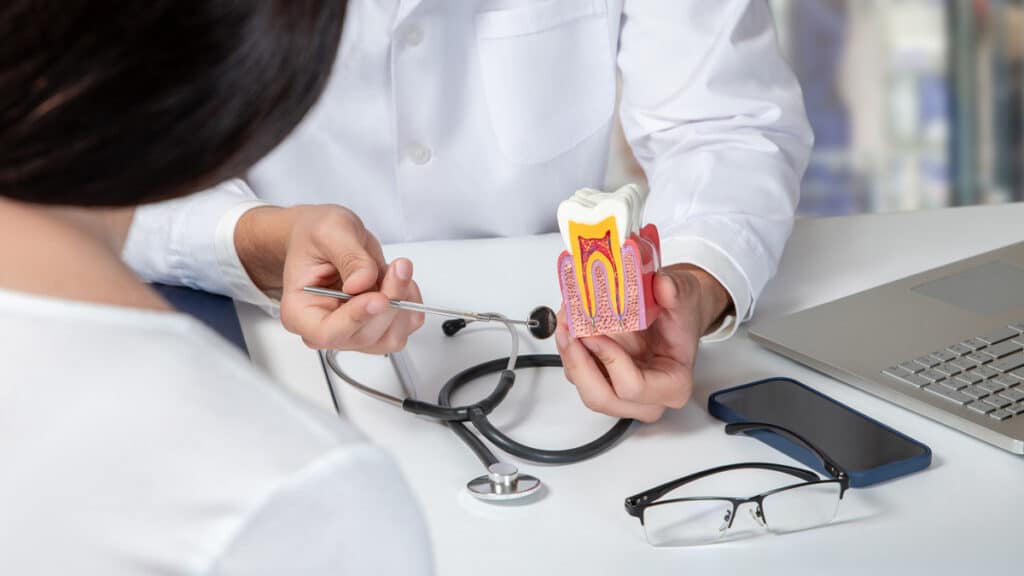What Is Gingivitis?
Gingivitis is a common and mild form of gum disease (periodontal disease) that causes irritation, redness, and swelling (inflammation) of your gingiva, the part of your gum around the base of your teeth. It’s often a precursor to more serious dental problems like periodontitis and tooth loss, if left untreated.

Causes
The most common cause of gingivitis is poor oral hygiene which encourages plaque to form on teeth, leading to inflammation of the surrounding gum tissues. Plaque is a sticky film of bacteria that forms on the surface of and in between teeth. If this plaque is not removed by regular brushing, flossing, and dental check-ups, it can produce toxins that irritate the gum tissue, causing gingivitis.
Other factors that may contribute to gingivitis include:
Common symptoms of gingivitis include:
How Is Gingivitis Identified?
Gingivitis is usually identified through a dental examination. Dentists and dental hygienists will examine your gums for signs of inflammation, including redness, swelling, and a tendency to bleed during probing. They may also assess plaque and tartar levels around your teeth and measure the depth of your gum pockets. If necessary, X-rays may be taken to check for bone loss.
Why Is Gingivitis Treatment Important?
Treatment of gingivitis is crucial to prevent the progression of the disease to more serious conditions like periodontitis, which can lead to tooth loss. Additionally, research suggests that gum disease might be associated with other health conditions such as heart disease, diabetes, and certain types of cancer, so maintaining healthy gums is an integral part of overall health.
How Often May I Need Gingivitis Treatment?
If you have been diagnosed with gingivitis, Dr. Patel at Colonialtown Dental will likely recommend a dental cleaning, followed by a regular oral hygiene routine to control the plaque that causes gingivitis. This may involve brushing twice daily, flossing daily, and rinsing with an antibacterial mouthwash.
Typically, it is recommended to have dental cleanings twice a year, though this may vary based on your personal oral health. If your gingivitis is more severe, more frequent visits may be needed until your gum health improves.
Dr. Patel with discuss with you the best practices for preventative care and maintaining healthy gums. A lifestyle that includes balanced nutrition, limited snacks, and tobacco avoidance also helps maintain oral health.
Interested in Learning More About Gingivitis Treatment?
Dr. Patel and his team at Colonialtown Dental has extensive experience and knowledge regarding gingivitis and it’s treatment. Colonialtown Dental has been serving Orlando and the surrounding areas for over 28 years. Book online or give us a call today!
Services
Cosmetic Dentistry
General Dentistry
- Crowns
- Extraction
- Fillings
- Fluoride
- Periodontal Disease
- Regular Exam & Cleaning
- Root Canals
- Sealants
- Wisdom Teeth
Orthodontics
